On April 22, the 14th International Symposium on Digital Earth, organized by the International Society for Digital Earth (ISDE) and the Southwest University of China, opened in Chongqing. As the world enters the final five-year sprint toward achieving the UN SDGs, the symposium zeroed in on the theme “Digital Earth Facilitating Sustainable Development Goals,” delving into topics such as technological innovation in Digital Earth, global ecological progress, and sustainable development. It brought together almost 700 delegates from up to 30 countries and regions, including representatives from government agencies, scientific and educational communities, industry, and United Nations and international organizations to discuss digital and intelligent solutions to global development challenges.

(Opening Ceremony)
The opening ceremony featured remarks from Mr. Zhen Ma, Vice Mayor of Chongqing; Mr. Csaba Kőrösi, President of the 77th United Nations General Assembly; Dr. Alessandro Annoni, President of ISDE; Prof. Jinjun Wang, President of Southwest University of China; and video remarks from Mr. Zhenyu Wang, Deputy Director of the Bureau of International Cooperation, Chinese Academy of Sciences (CAS). The ceremony also welcomed distinguished appearances of Academicians Deren Li, Bojie Fu, and Jun Xia, from Chinese Academy of Sciences; and Academicians Josef Strobl and Thomas Blaschke from the Austrian Academy of Sciences; and Prof. David J. Coleman, Fellow of the Canadian Academy of Engineering. Many other esteemed experts also graced the occasion.
The remarks session was chaired by Academician Huadong Guo of CAS, who is also the Honorary President of ISDE and Chairman of the 14th International Symposium on Digital Earth. Prof. Guo emphasized the urgent challenges the world faces in achieving the UN 2030 Agenda, while also expressing optimism that the rapid advancement of Digital Earth technologies, particularly through accelerated digital transformation, is opening up promising new pathways toward achieving these goals. He noted that today’s symposium is particularly timely, as it brings much-needed focus to Digital Earth theory, data, and related technological innovations, all of which are poised to play a pivotal role in advancing global sustainability.

(Prof. Huadong Guo Chaired Opening Ceremony)
Mr. Csaba Kőrösi highlighted the vast potential of digital technologies, big data management, and science-based methodologies in steering our efforts to satisfy the sustainable development needs. “Science is one of the most important shapers of our understanding of reality, upon which basic decisions should be made. This holds true for digital science and technology as well. More importantly, Digital Earth offers a transformative approach,” said he. Mr. Kőrösi stressed the importance of valuable insights and effective actions, while efforts from national and international institutions are essential as well, including the ISDE, and called for hands-on action aligned with the UN in reaching the 2030 Agenda.

(Remarks by Mr. Csaba Kőrösi)
Dr. Alessandro Annoni emphasized the significance of bringing the symposium back to China. While acknowledging groundbreaking advancements, such as quantum-enhanced AI, hyper-realistic Digital Twins, and nano-satellite constellations with real-time AI processing, he also expressed concern over the persistent gaps in achieving sustainable development. He called for the adoption of open science and open data principles as a way forward.
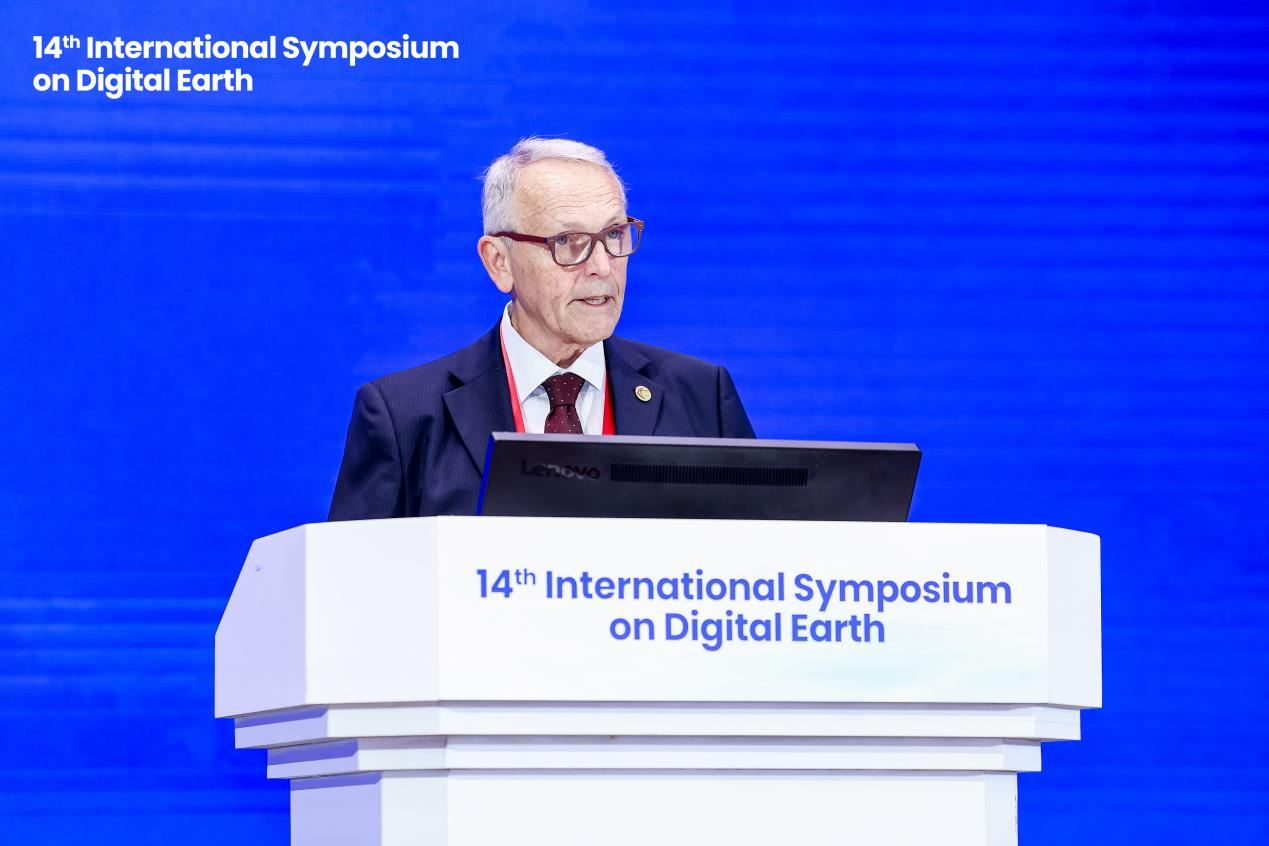
(Remarks by Dr. Alessandro Annoni)
Mr. Zhenyu Wang emphasized that CAS places great importance on scientific and technological innovation as well as international cooperation in the field of Digital Earth. He expressed his confidence that ISDE is able to achieve more research and cooperation outcomes in the world science community.
Prof. Jinjun Wang, President of Southwest University, stated in his speech that Digital Earth technology, as a core tool for humanity to explore earth sciences and address global challenges in the 21st century, is deeply reshaping our understanding and practice. This conference coincides with a crucial juncture of global digital transformation, making it of great significance. Centering around the discipline of geography, the university, empowered by artificial intelligence, focuses on three major strategic directions, serves major national strategies, and contributes to the construction of Digital Chongqing.
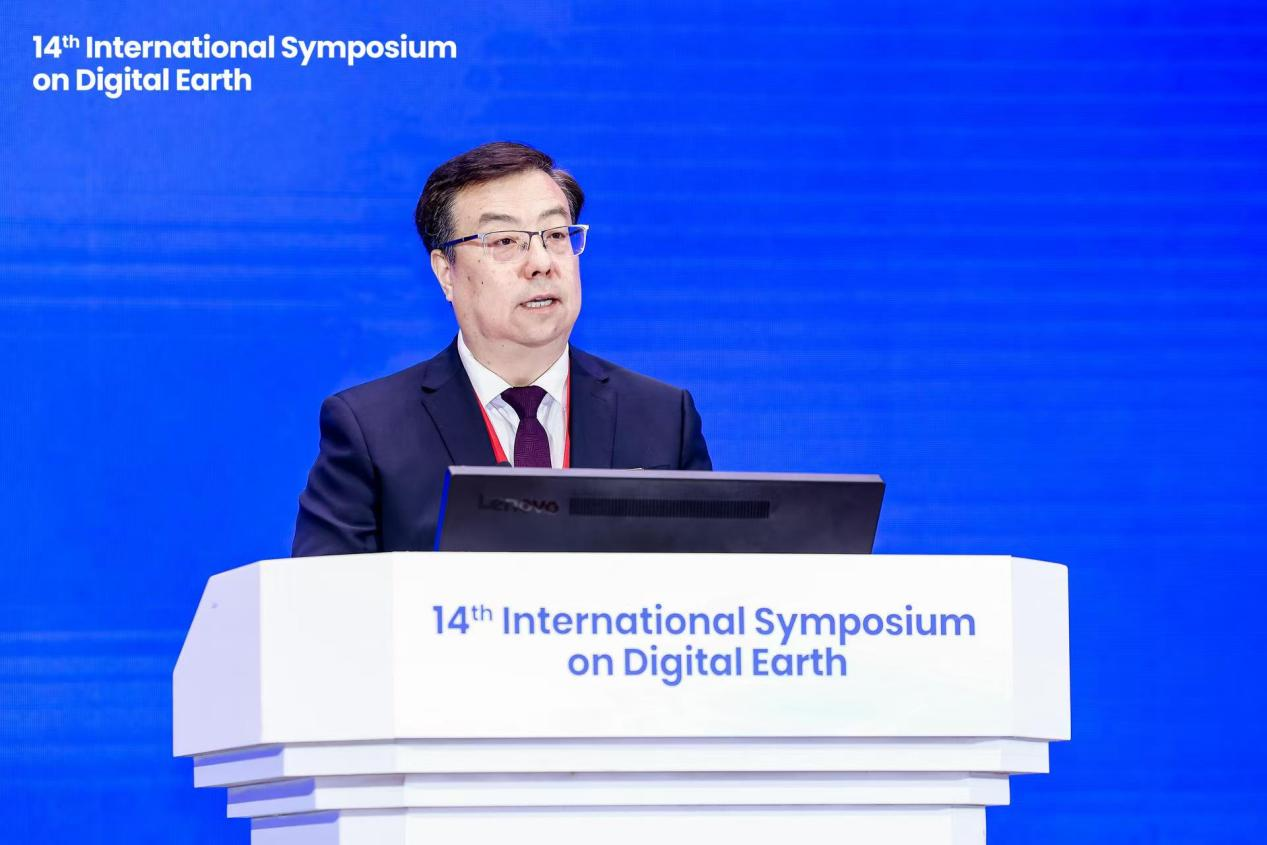
(Remarks by Prof. Jinjun Wang)
At the opening ceremony, ISDE conferred its highest honor “ISDE Fellow” upon Dr. Alessandro Annoni for his profound and transformative contributions to advancing the Digital Earth vision, and upon Prof. Deren Li for his outstanding contribution in the fields of Earth space information science, and to the global development of Digital Earth. Additional awards, including Digital Earth Medal, Digital Earth Education Award, ISDE Service Award, ISDE Conference Organizing Award, and ISDE Outstanding Young Scientist Award, were also presented to pioneers and contributors in the relevant research field of Digital Earth in recognition of their dedication to Digital Earth development globally.
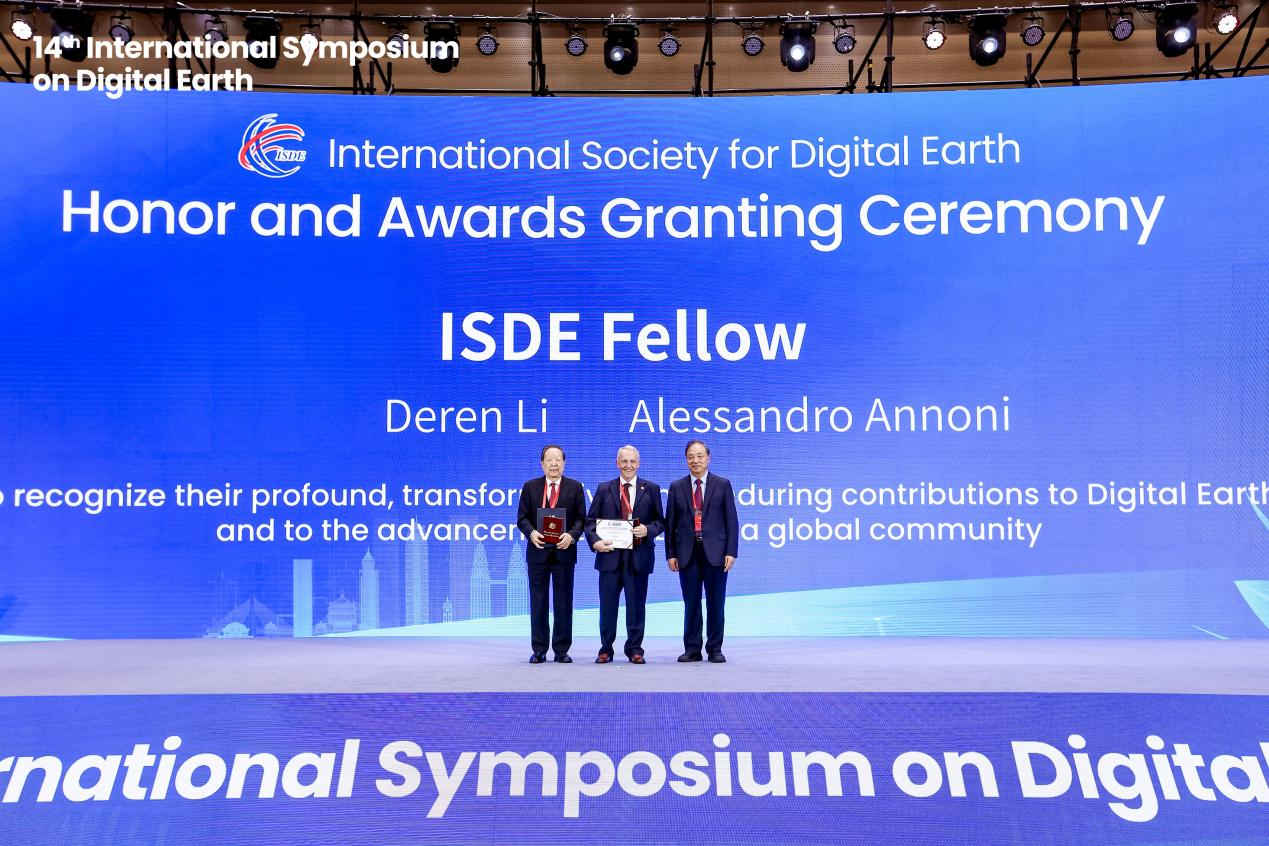
(ISDE Fellow Conferment Ceremony)
In the following plenary sessions, Prof. Deren Li gave a keynote titled “Spatio-temporal Intelligence for SDG.” He offered an in-depth exploration of the origins and connotation of Spatio-temporal Intelligence (STI), showcasing a wide range of PNT applications and their evolution into PNTRC. What captivated the audience most was the STI’s role in supporting the SDGs, with notable achievements in mapping humanitarian crises, tracking economic development, and monitoring wildfires, earthquakes, and more. He also delved into an especially engaging topic “Digital Twin in Smart Grid”, presenting it as a vivid and tangible representation of the broader vision of the Digital Earth.
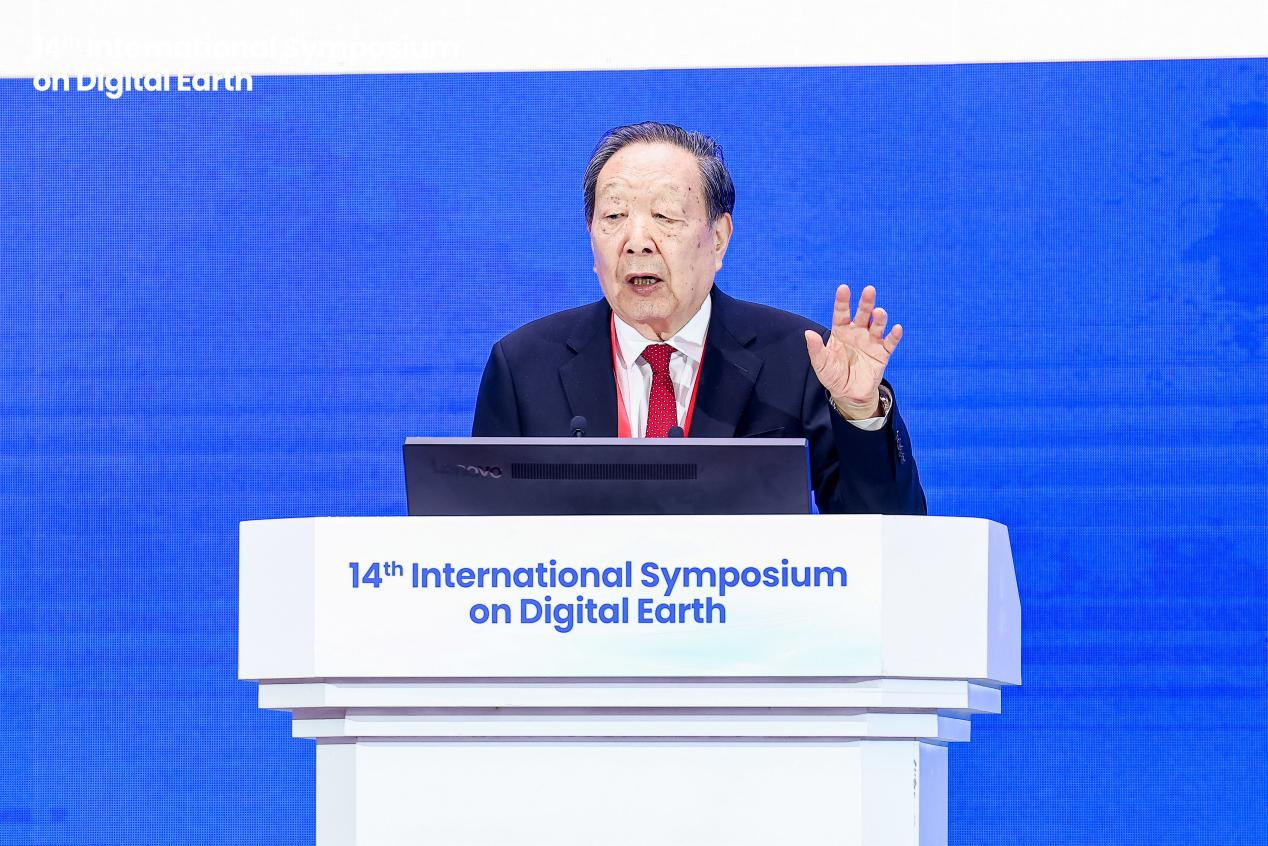
(Keynote by Prof. Deren Li)
Mr. Csaba Kőrösi delivered an intriguing keynote titled “Challenges to and Digital Solutions for Sustainability Transformation towards 2030 and Beyond.” He reviewed the current progress toward the SDGs, identifying key gaps and underscoring the importance of political support, methodological / scientific approaches, and financial frameworks to accelerate advancement. He particularly emphasized the need for an integrated national plan as essential to the final realization of SDGs, and stressed that “global cooperation on standardized, accessible data is key.”
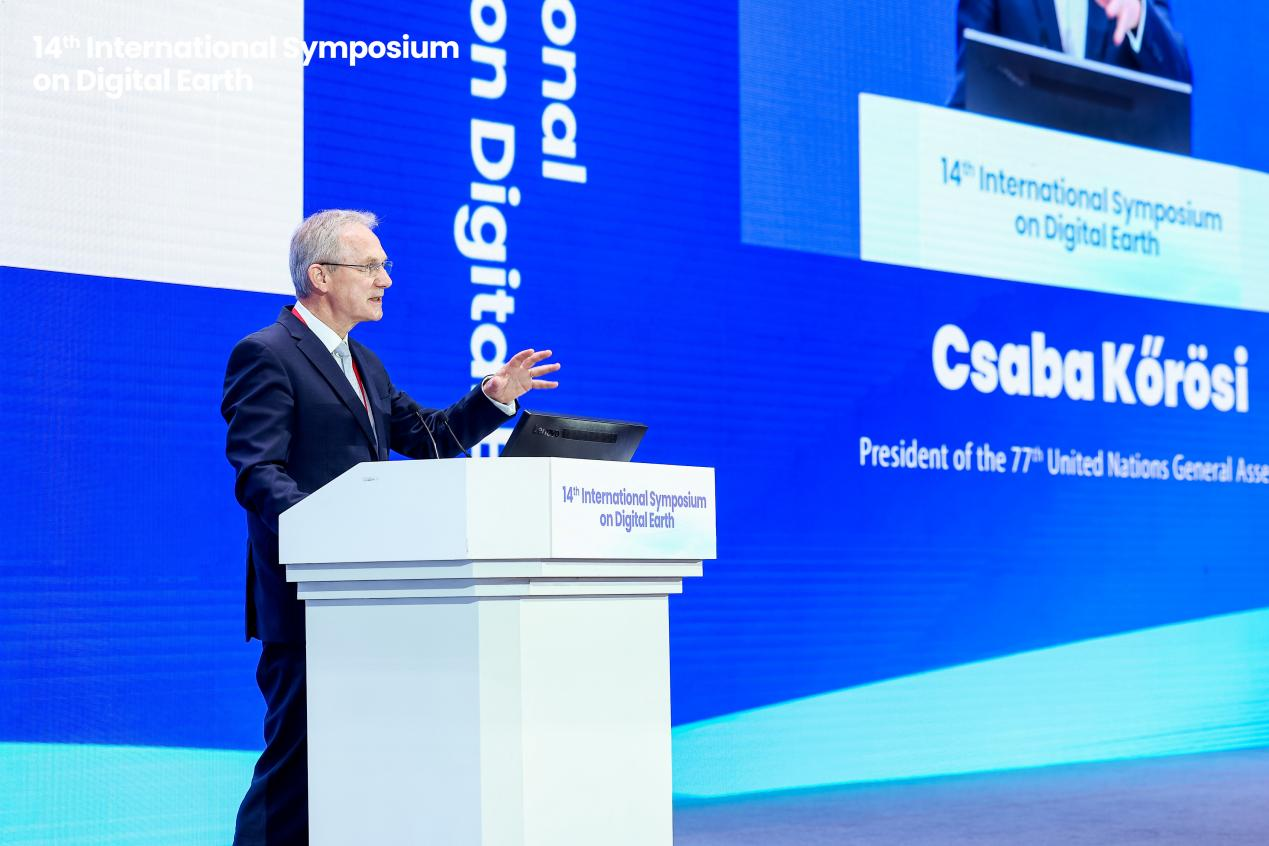
(Keynote by Mr. Csaba Kőrösi)
Prof. Huadong Guo gave a keynote speech titled “Digital Technology for Accelerating SDGs Progress,” highlighting how an extensive array of digital technologies, especially the Big Earth Data Science Engineering Program (CASEarth), is driving sustainable development. He demonstrated key achievements such as the inauguration of the International Research Center of Big Data for Sustainable Development Goals (CBAS), the launch of the SDGSAT-1 satellite, and the development of the SDGSAT-1 Open Science Program and SDG Big Data Platform System, and the production of 6 volumes of Reports on Big Earth Data in Support of SDGs. Prof. Guo also underscored the newly launched Digital SDGs Programme (DSP), a UNESCO-endorsed initiative set to make greater contributions to the global sustainable development.
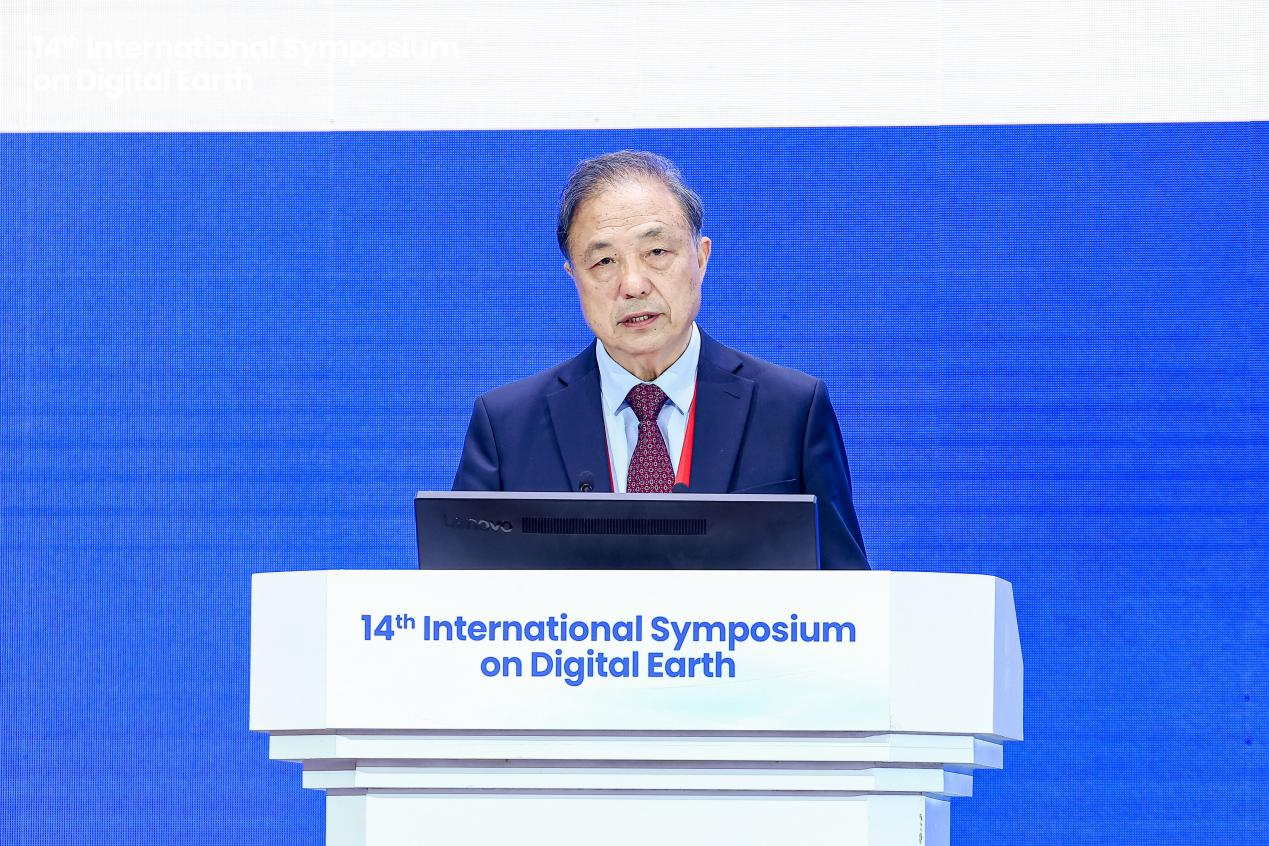
(Keynote by Prof. Huadong Guo)
Prof. Bojie Fu, Dr. Alessandro Annoni, Prof. Thomas Blaschke. Prof. David J. Coleman, and Prof. Hiromichi Fukui, Vice President of Chubu University, Japan, also delivered insightful keynotes.
The International Symposium on Digital Earth is a brand international academic event organized by ISDE. Since the inaugural symposium in 1999 and the sixth edition in 2009, today’s event marks the third time the event took place in China.
Spanning three days, the symposium will feature 8 keynote speeches, 53 parallel sessions and 470 presentations on topics, including but not limited to Digital Sustainable Development Goals Programme (DSP); disaster monitoring and reduction; big Earth data sharing, applications, and services; AI applications to Digital Earth development; and SDG implementation.
A World Earth Day theme pop-up event hosted by School of Geographical Sciences, Southwest University of China drew significant engagement.
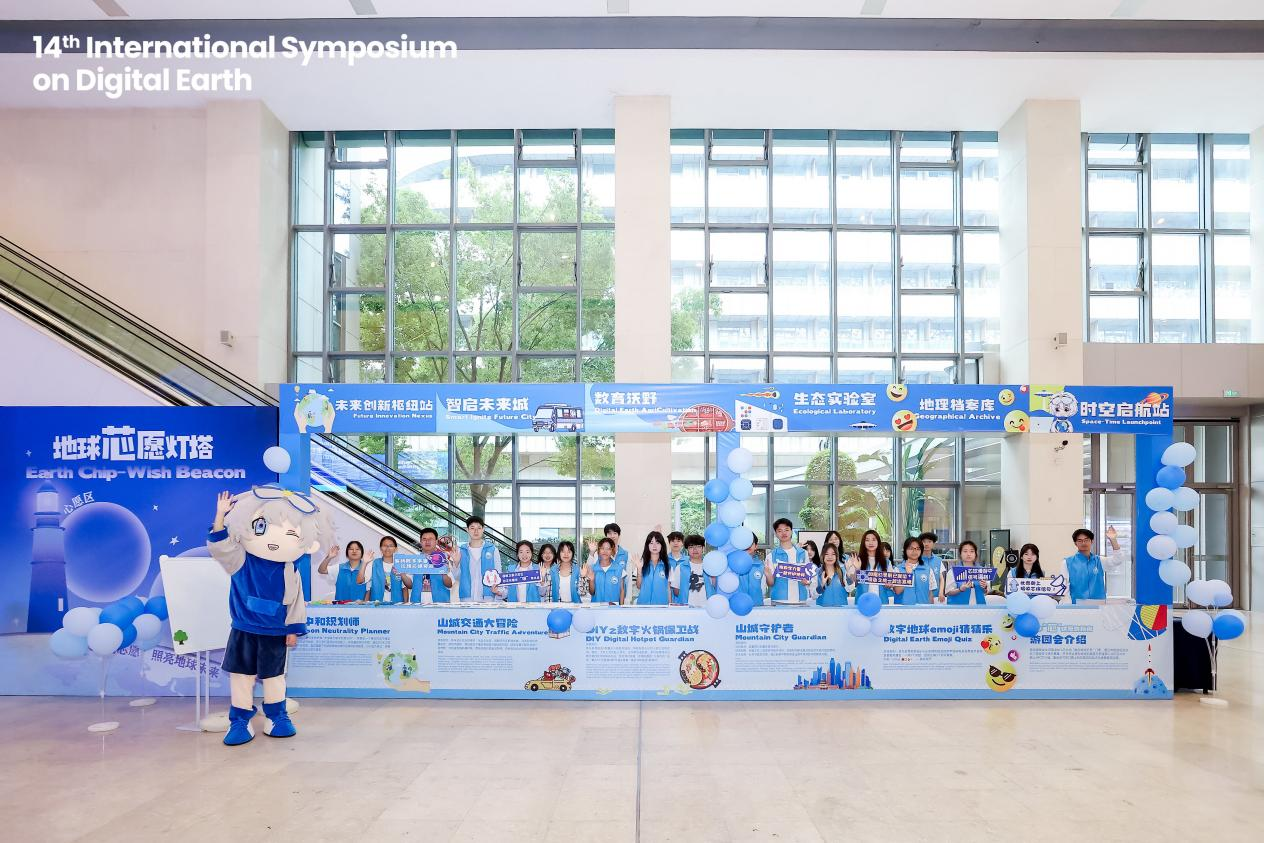
(World Earth Day Theme Pop-up Event)
Another milestone document titled 2025 Chongqing Declaration on Digital Earth will be endorsed at the closing ceremony. This symposium is co-hosted by Chinese National Committee of ISDE, the CBAS, Southwest University’s School of Geographical Sciences, and Chongqing Yueliang Liangjiang International Hotel Conference Management Co., Ltd., with support from nearly 40 international organizations, research institutes, and universities.
Founded in 2004, ISDE is an international organization principally promoting academic exchange, science and technology innovation, education, and international collaboration towards Digital Earth. It has organized 14 International Symposia on Digital Earth and 9 Digital Earth Summits in 16 countries worldwide, published two international journals — the International Journal of Digital Earth, and the Big Earth Data, and built up collaborations with international organizations like ISC, UN-GGIM GS, GEO, CODATA, ISPRS, etc.

2006-2023 All Rights Reserved 京ICP备06045536号-1 京公网安备 11010802041631号